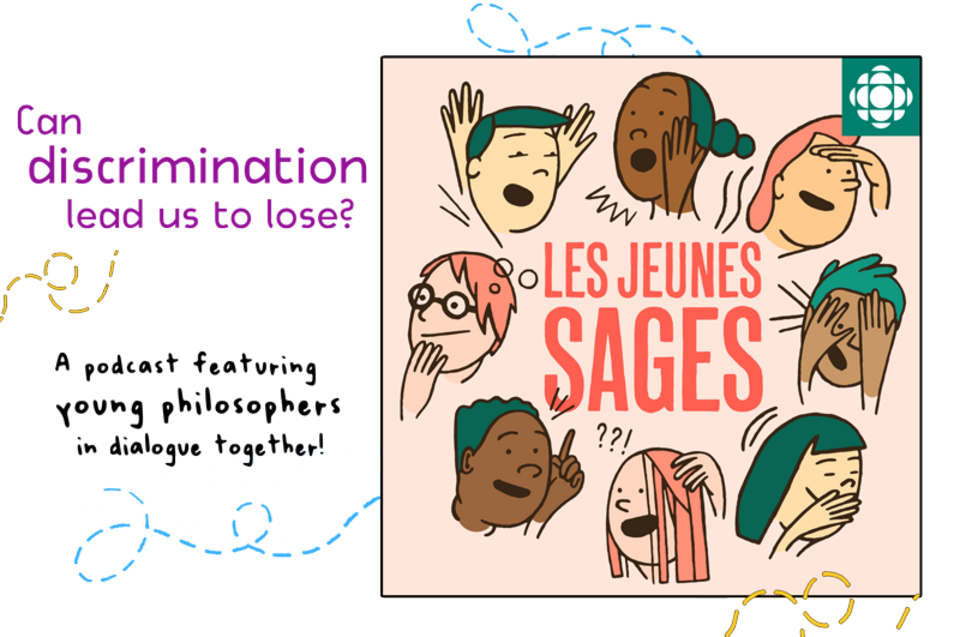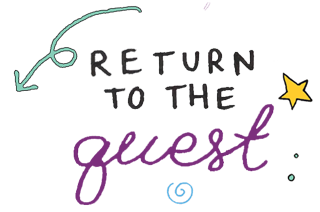
Loss: a good thing… or a lost cause?
| Objective: To feed your philosophical reflections on loss with your family's help during lunch! |
Duration : 30 to 75 minutes
Material :
-
Sheets of paper and pen
-
Coloured pencils and markers
-
Your family
Instructions :
It's time to eat! Gather your family around the table for a memorable dialogue about loss. Explore the following questions, finding inspiration in the thinking prompts as necessary. Together, think of reasons to explain your positions and try to build an answer by combining your ideas! But don't worry if the urge to keep talking doesn't subside... philosophical picnics are an insatiable quest!
...
- Question 1: Is loss necessarily bad?
- Thinking prompts : Have you ever heard that expression, “You don’t know what you’ve got till it’s lost?” What do you think it means? As a concept, loss seems to often find itself on the other end of many things we appreciate: if we’re not winning, we’re losing; if we’re not on the right path, we’re lost; if we’re not organized, we’ve lost track of things; if we’re not of sound mind, we’ve lost it. But is loss always such a negative thing? With your family, try to think of some situations when loss, losing or being lost might actually be desirable, even beneficial. What about losing yourself in an intriguing project or being lost in the adoring eyes of the person you love? Are some losses worse than others? Why or why not? What might be some criteria that mark the difference between good types of loss and bad ones? Now have a look at your definition of loss from the first Idea Stretching mission, and share it with your family: How might you refine it in light of your new ideas?
-
Question 2: Is it possible to live without loss?
- Thinking prompts: As humans, we seem quite fascinated by the idea of everlasting life—we’ve even created books, movies, music and artworks all about it! But can we really have a life… without losing it at some point? Is death inevitable? If so, does that mean that all losses are sure to happen too? Together, think of the different types of loss that we can experience as humans: from losing a home, a job, a physical ability or a relationship, to losing freedom, hope and even identity. Are these necessary parts of life? Why or why not? Try to organize the losses into the categories of “necessary” and “unnecessary,” giving reasons to explain your choices. Can some of these losses be prevented and—if so—should we try to keep them from happening? Hmm… maybe it depends on whether we all experience loss in the same way…
- Question 3: Can we understand another’s loss?
- Thinking prompts: Loss seems to cause all kinds of emotional experiences, from slight feelings of confusion and annoyance to very intense worry and deep sorrow. But if we’ve all faced loss at some point, does that mean we know what every kind of loss feels like? Can we understand the loss experienced by other people? If so, what is helping us reach that understanding? If not, what is missing in our own lives to keep us from really getting what others are going through? As a family, try to determine what steps we need to take to understand the experience of loss in others. Do the steps change if the other is… older? younger? from another culture? from another species? What does understanding mean in these cases? To help with your brainstorming, you can share examples of when you feel most understood after facing a loss. If we haven’t lived the same losses as others, does that imply we can’t appreciate their thoughts and feelings? Why or why not?Try to finish the sentence: If loss didn't exist, then _________.
...
Bonus : If your family is still feeling chatty, try a game of “Never Will I Ever” to get to know each other that much better. Take turns sharing scenarios that you personally would not do for fear of losing something important, using the phrase “Never will I ever ____________.” For example, maybe you would never hold a tarantula for fear of losing consciousness from sheer terror, or speak in public for fear of losing your status if you humiliate yourself, or walk to the edge of a cliff for fear of losing your balance and stumbling over. At each turn, think about the scenario and put one finger out if you think you might indeed do it, providing a reason to explain your choice. Continue with the scenarios until everyone has shared at least one, then see who has the most fingers extended. Is that person the least afraid… or the most likely to experience loss? Why? Do you wish you had less fingers outstretched or more? Should we take risks, even if it means we might experience loss? Why or why not? |

| Tricks for tots : You know those boxes at school where we keep “Lost and Found” objects? If you’ve misplaced your ball or your mitten, your pencil or your water bottle, you can check to see if someone else has stumbled upon it and placed it in the box for safekeeping. But what if it were possible to have a “Lost and Found” box in our mind? Have you ever lost a memory, a feeling or an idea… and wish you could retrieve it somehow? If so, why is it so important to you? How would your life be better if you found it again? And how could you help yourself locate it in your mind? |
| Tips for teens : Parlez-vous français ? As you prepare your meal or digest your feast of delicacies and tasty ideas, listen to the Les jeunes sages podcast on discrimination. Drawing inspiration from the reflections of the young philosophers, try to answer the question: Is it dangerous to be different? Do you agree or disagree with the answers given by the participants? Try to think of lines of thinking that have not been addressed. What other angles of the concept of discrimination deserve to be explored? Perhaps wonder about the link between loss and discrimination… What is lost through discrimination? Can the fear of difference be justified? What would the world be like if we lost the capacity to be different? Would discrimination still exist? If you can’t understand French, don’t worry! You can still wonder about these questions! You can even imagine that you are recording a podcast with your family… Family Wisdom! |
Share your creative reflections by sending them via email.
Include photos of your projects and notes of your thoughts, as well as your first name and your age!


